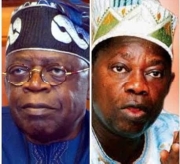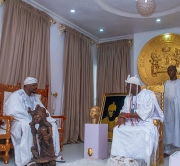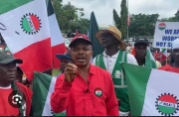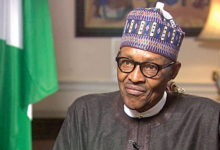
Tinubu, a pivotal force in Nigeria’s pro-democracy struggle – CSO’s Strategist
CITIZENS COMPASS—As Nigeria continues to consolidate on her democratic journey, it is crucial to reflect on the pivotal roles played by key national figures in securing the freedom and democratic governance the nation enjoys today. One of the foremost champions of the movement is President Bola Ahmed Tinubu, whose courage, resilience, and unwavering commitment to democratic ideals were instrumental during Nigeria’s most turbulent political era.
President Tinubu’s political activism came into national prominence during the June 12, 1993 presidential election crisis, widely regarded as Nigeria’s freest and fairest election which was annulled by the then military regime under General Ibrahim Babangida.
As a Senator of the Federal Republic of Nigeria at the time, Tinubu did not only lend his voice to the outcry against the injustice but also took bold, personal steps in the fight for the actualization of the mandate presumably won by the late Chief M.K.O. Abiola.
In the wake of an increased military repression and a shrinking civic space, Tinubu became a founding member of the National Democratic Coalition (NADECO), an alliance of pro-democracy activists, politicians, and intellectuals committed to ending military rule and restoring civilian governance.
Within NADECO, Tinubu worked both openly and clandestinely, often at great personal risk, to expose the excesses of the military junta to the international community. His activities led to targeted harassment by the regime, forcing him into political exile.
While in exile, Tinubu continued to be a vocal advocate for Nigeria’s return to democracy. He partnered with international human rights organizations, spoke at global platforms, and supported the mobilization of Nigerians in the diaspora to maintain international pressure on the regime. His home and resources were devoted to the cause of democracy, offering refuge and logistical support to fellow activists.
The sacrifices of Tinubu and his NADECO colleagues eventually contributed to the fall of military dictatorship in 1999, ushering in Nigeria’s Fourth Republic. Upon returning from exile, Tinubu re-engaged in national politics and was elected Governor of Lagos State, where he initiated bold reforms that transformed the state’s governance structure and economy. He was the first and only Governor that declared June as democracy day, setting the tone for democratic dividends at the state level.
Today, as President of the Federal Republic of Nigeria, Asiwaju Bola Ahmed Tinubu remains a symbol of democratic resilience. His journey from being a pro-democracy activist, through exile, and rising into the nation’s highest office underscores a life devoted to the service of the Nigerian people and the preservation of democratic ideals.
In addition to Tinubu’s role mentioned above, another major contribution that can’t be taken away nor forgotten easily is the post NADECO era and his contribution to the political opposition and party development in Nigeria.
The Nigerian government under President Tinubu remains committed to strengthening democratic institutions, promoting human rights, and ensuring that the sacrifices of the past continue to yield enduring benefits for all citizens.
For CSO’s Strategist.
Balogun Hameed
Convener
Frontline socio-economy Research centre (FSRC)
Co- Conveners
Workbond international Network (WIN)
Yoruba Youth Assembly (YYA)
Congress of Nigeria Youth League (CNYL)
Centre for human and socio-economy rights. (CHSR)
Lagos State Liberation Congress (LASLIC)
People’s Accountability and Transparency (PAT)
Vanguard for Social Justice (VSJ)
Centre for Human Rights (CHR)
Centre for Peace Initiatives (CPI)







